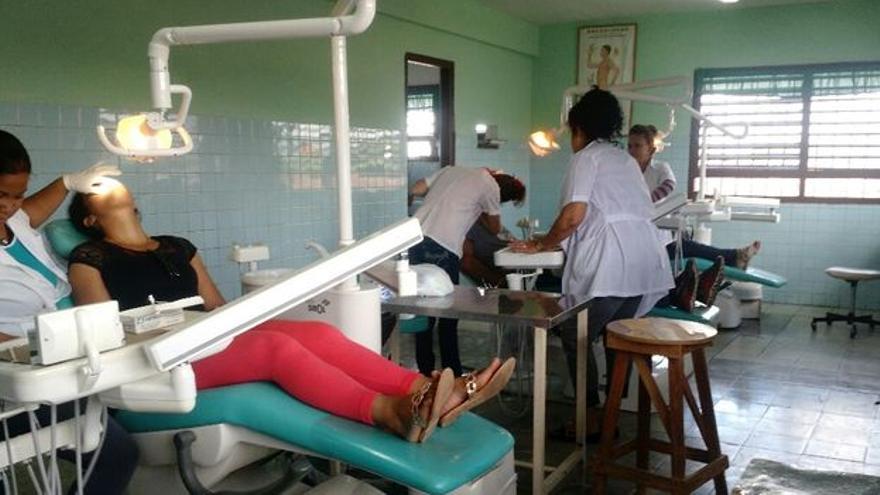
![]() 14ymedio, Havana | 8 February 2023 — Sancti Spíritus hospitals refuse to use the medical supplies provided by the patients themselves if they are not previously approved by the Center for State Control of Quality of Medications (CECMED). Daniel Álvarez Rojas, head of the Stomatology (Oral Medicine) section in the province, admitted that they do not have the necessary resources, but that they cannot be held responsible if the medicine has been acquired on the black market or if it does not have quality certifications.
14ymedio, Havana | 8 February 2023 — Sancti Spíritus hospitals refuse to use the medical supplies provided by the patients themselves if they are not previously approved by the Center for State Control of Quality of Medications (CECMED). Daniel Álvarez Rojas, head of the Stomatology (Oral Medicine) section in the province, admitted that they do not have the necessary resources, but that they cannot be held responsible if the medicine has been acquired on the black market or if it does not have quality certifications.
In an interview with Escambray, Álvarez Rojas confirmed that in Sancti Spíritus, as in the rest of the Island, medical centers have no choice but to work with the medicines that patients bring. In the case of his specialty, he explained, they allow amalgams or resin because “they do not compromise life”, but when it comes to using other supplies of dubious origin, such as anesthesia, the risk increases and the official decision in those cases is not to intervene.
Anesthesia, he warned, is administered directly to the nerve through infiltration techniques, for which reason only drugs certified by CECMED are applied.
The measures to alleviate the shortages in Cuba authorize the duty-free importation of food, toiletries and medicines. However, the newspaper adds, some “have ignored the ‘non-commercial’ warning and forget that certain medications, such as anesthesia, can put a person’s life at risk.”
“Sometimes, the way of administering this imported type of medicine is also very different from the one we use in Cuba, with different doses”
Escambray acknowledges that “it is understandable” that more and more people from Sancti Spiritus turn to social networks to buy drugs in their “desperate attempt” to put an end to a toothache. The newspaper points out that “it is no longer surprising” to find on the classified portal of Revolico the sale of bottles of dental anesthesia at prices between 500 and 600 pesos, along with other medicines for bronchiolitis, vitamins, and even the antiparasitic metronidazole.
Álvarez Rojas explained that there are few occasions in which the vials carried by the patients can really be used in the treatments, because they lack key information for their use, such as the expiration date and the CECMED certification. “Sometimes, the way of administering this imported medicine is also very different from the one we use in Cuba, with different doses,” he said.
Thus, people who go to the black market to buy an anesthetic bulb are in danger of losing their money, because no dentist will risk applying the drug without the minimum specifications, he warned.
The dentist pointed out that hospitals in the province are facing an anesthesia shortage, which they hope to temporarily overcome with the recent arrival of a batch to Cuba. The drug will be used for dental extractions and other treatments, added the professional, who believes that more imported supplies will be available in 2023. Of supplies available in 2022, he assured that attention to pregnant women, children under 19 years of age, the elderly, and people with disabilities was prioritized.
*Translator’s note: CECMED: Regulatory Authority of Medicines, Equipment and Medical Devices of the Republic of Cuba, responsible for promoting and protecting public health.
Translated by Norma Whiting
____________
COLLABORATE WITH OUR WORK: The 14ymedio team is committed to practicing serious journalism that reflects Cuba’s reality in all its depth. Thank you for joining us on this long journey. We invite you to continue supporting us by becoming a member of 14ymedio now. Together we can continue transforming journalism in Cuba.
